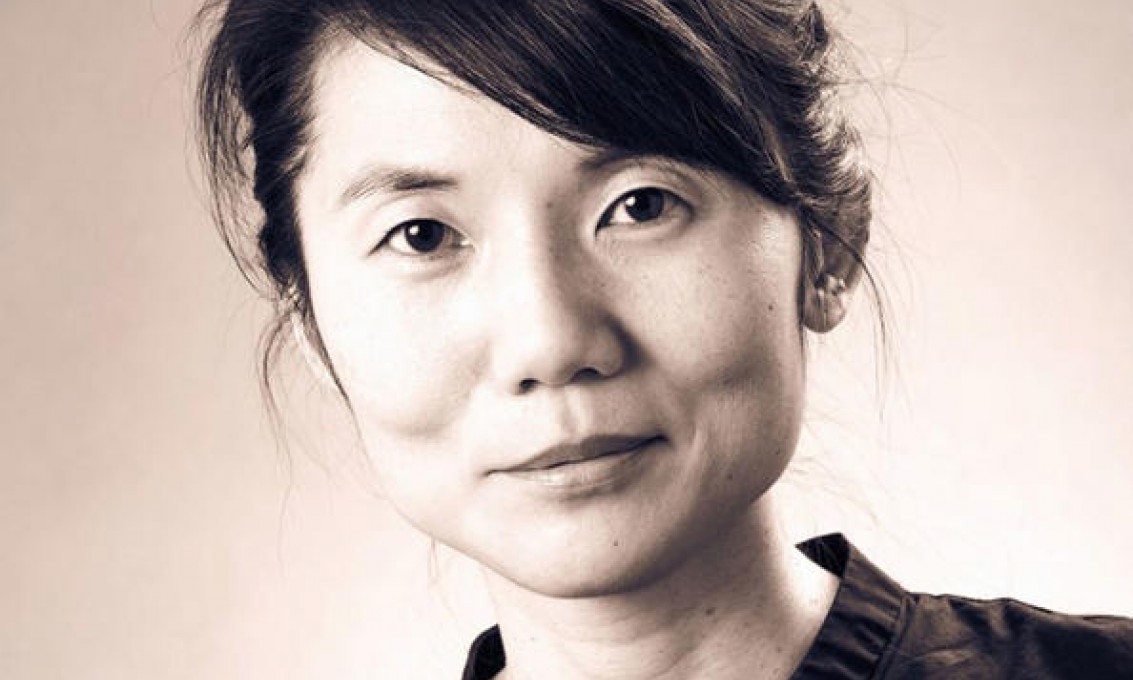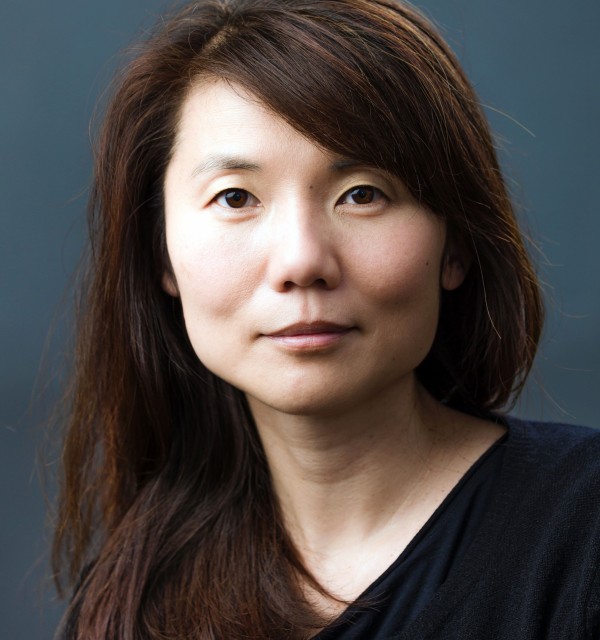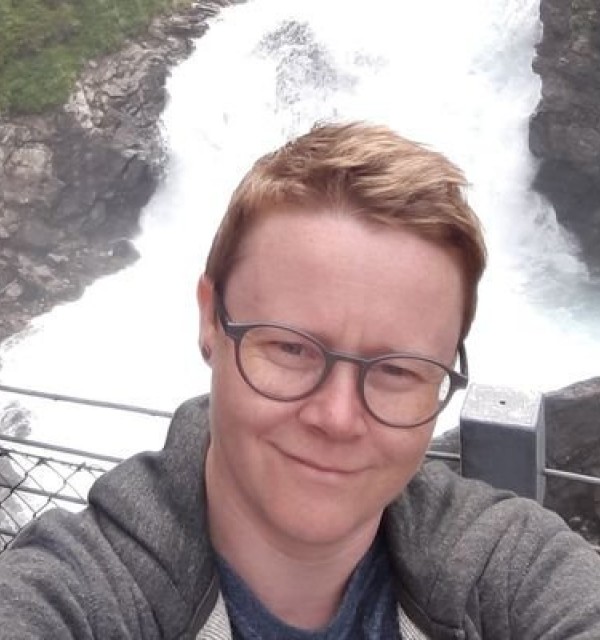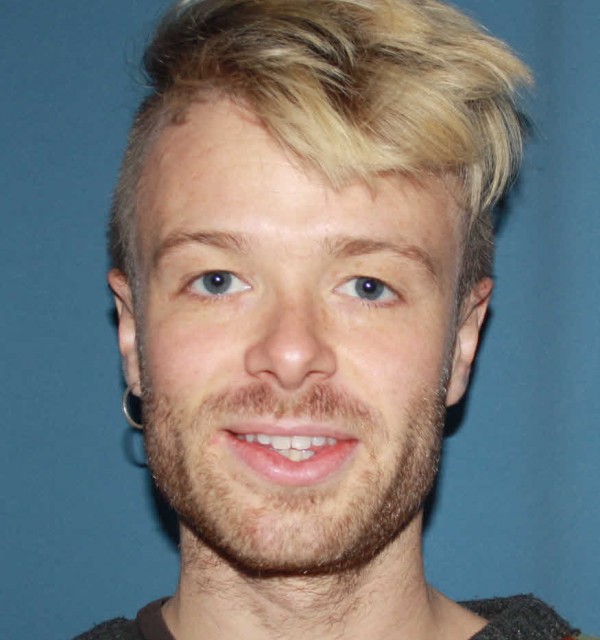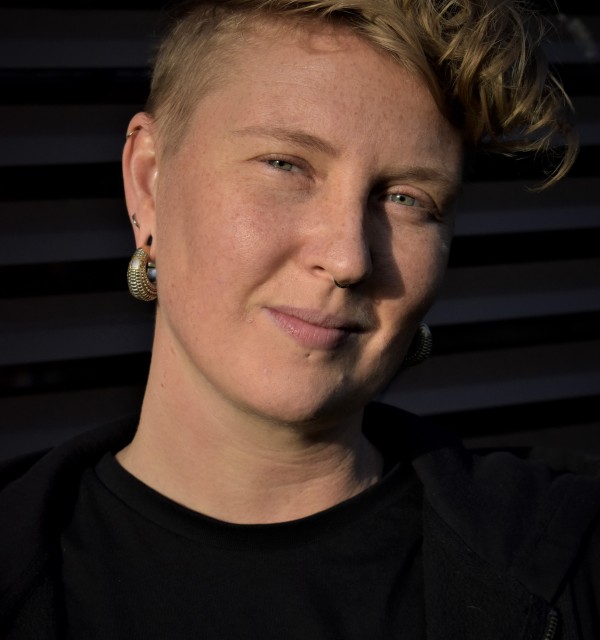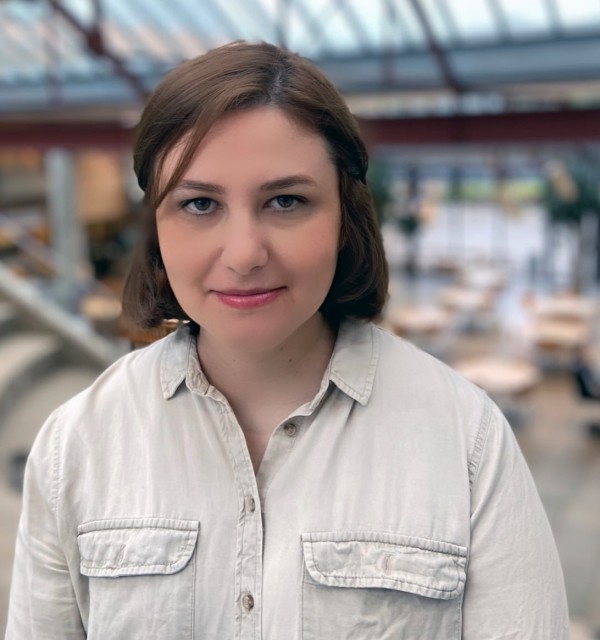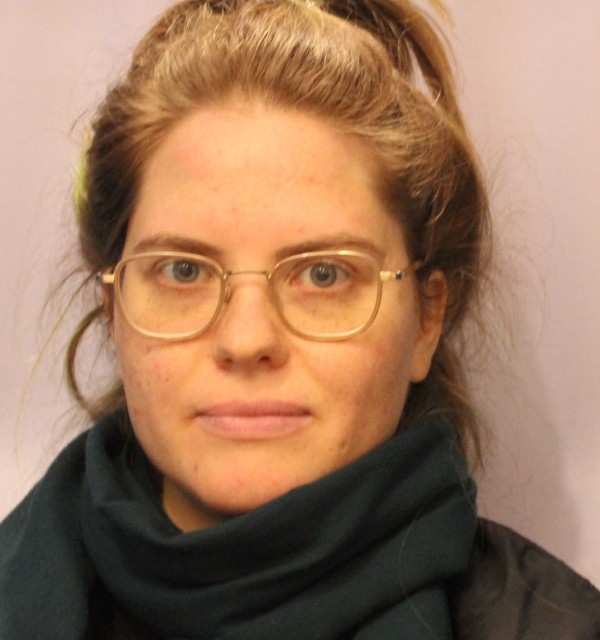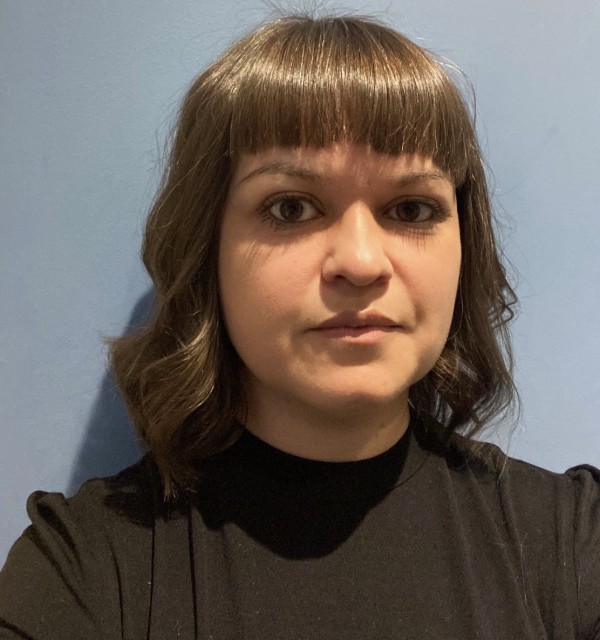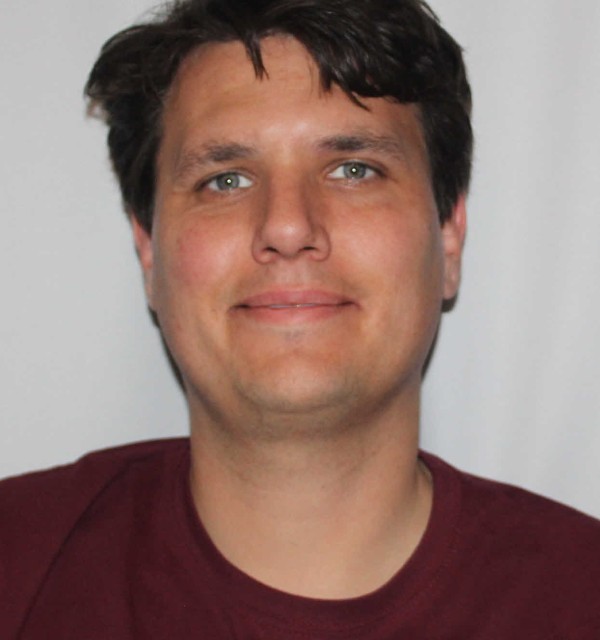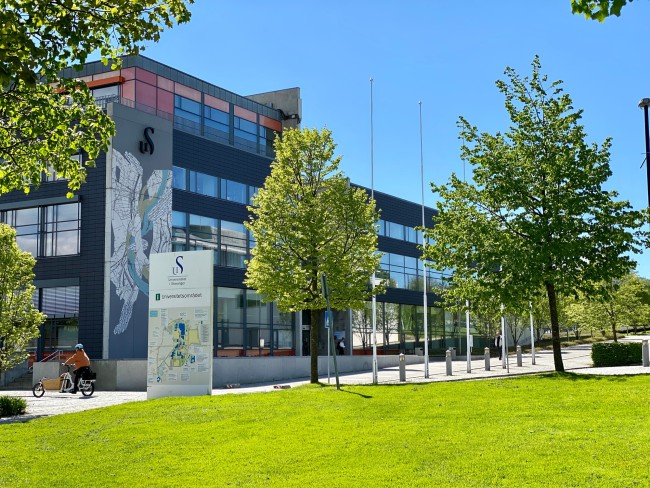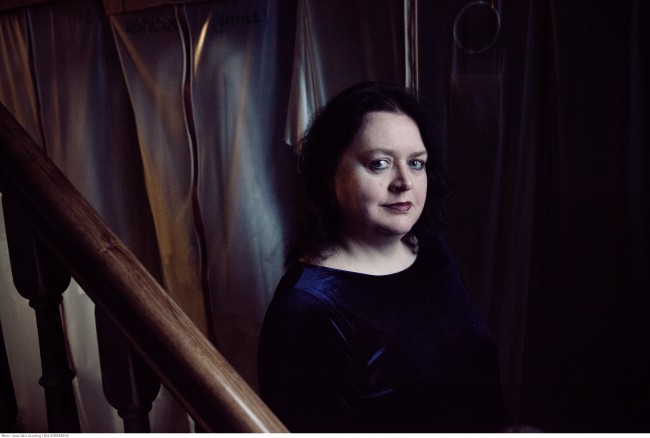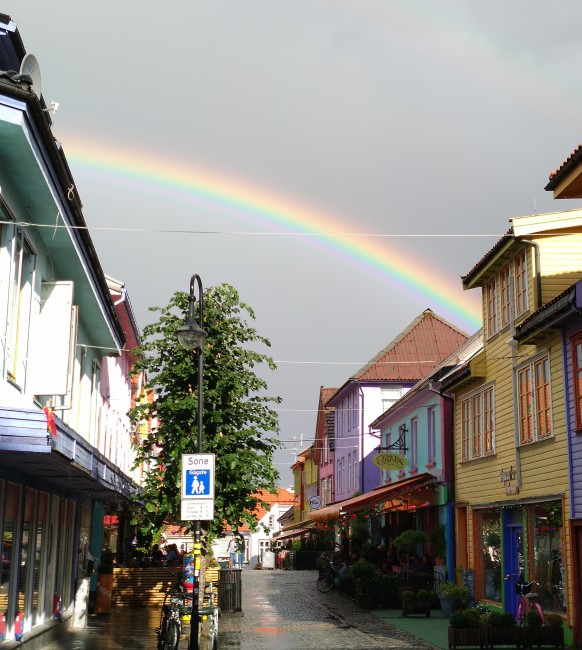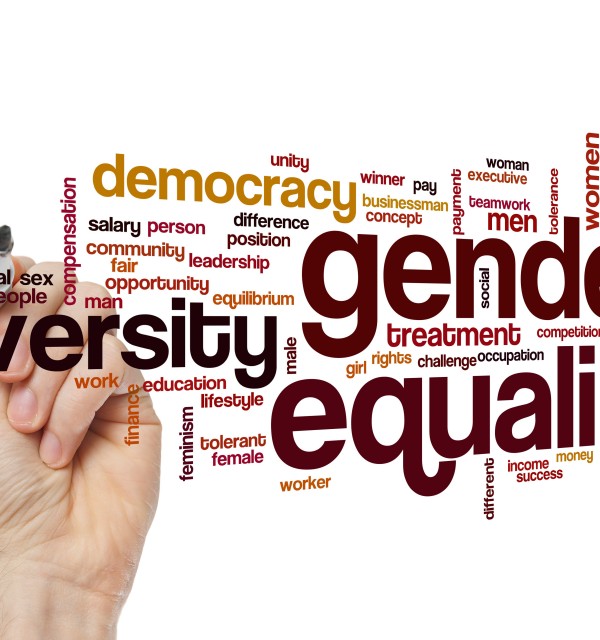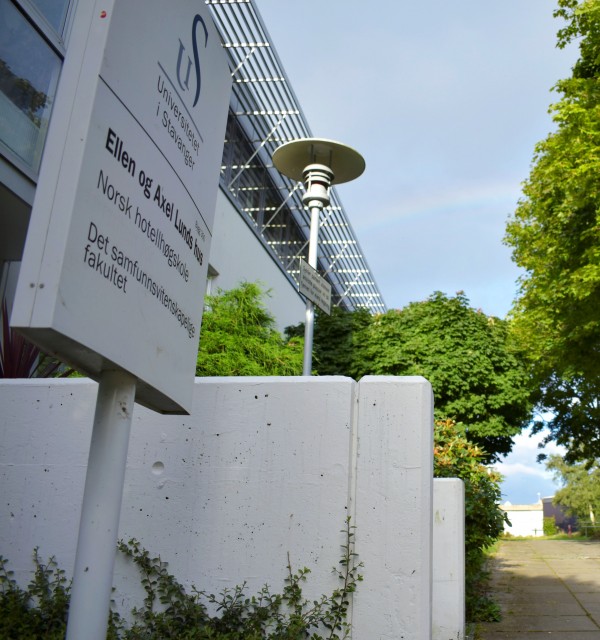Centre for Gender Studies is located at The Faculty of Social Sciences. We conduct research and offer courses in interdisciplinary gender studies.
8 researchers 33 affiliated researchers 10 research projects 3 subjects, one minor
kjonnsforskning@uis.no
Centre for Gender Studies conducts research and offers courses on the ways that power and inequality influence society.
About Centre for Gender Studies
The Centre’s principal ambition is to engage in interdisciplinary research that critically explores structural inequalities broadly defined, and how they contribute towards maintaining, challenging and stratifying various forms of lives and existences.
The Centre offers four courses on bachelor- and master-levels as well as a Minor Concentration in Gender Studies. The Centre participates in several collaborative research projects supported by international and national funding agencies.
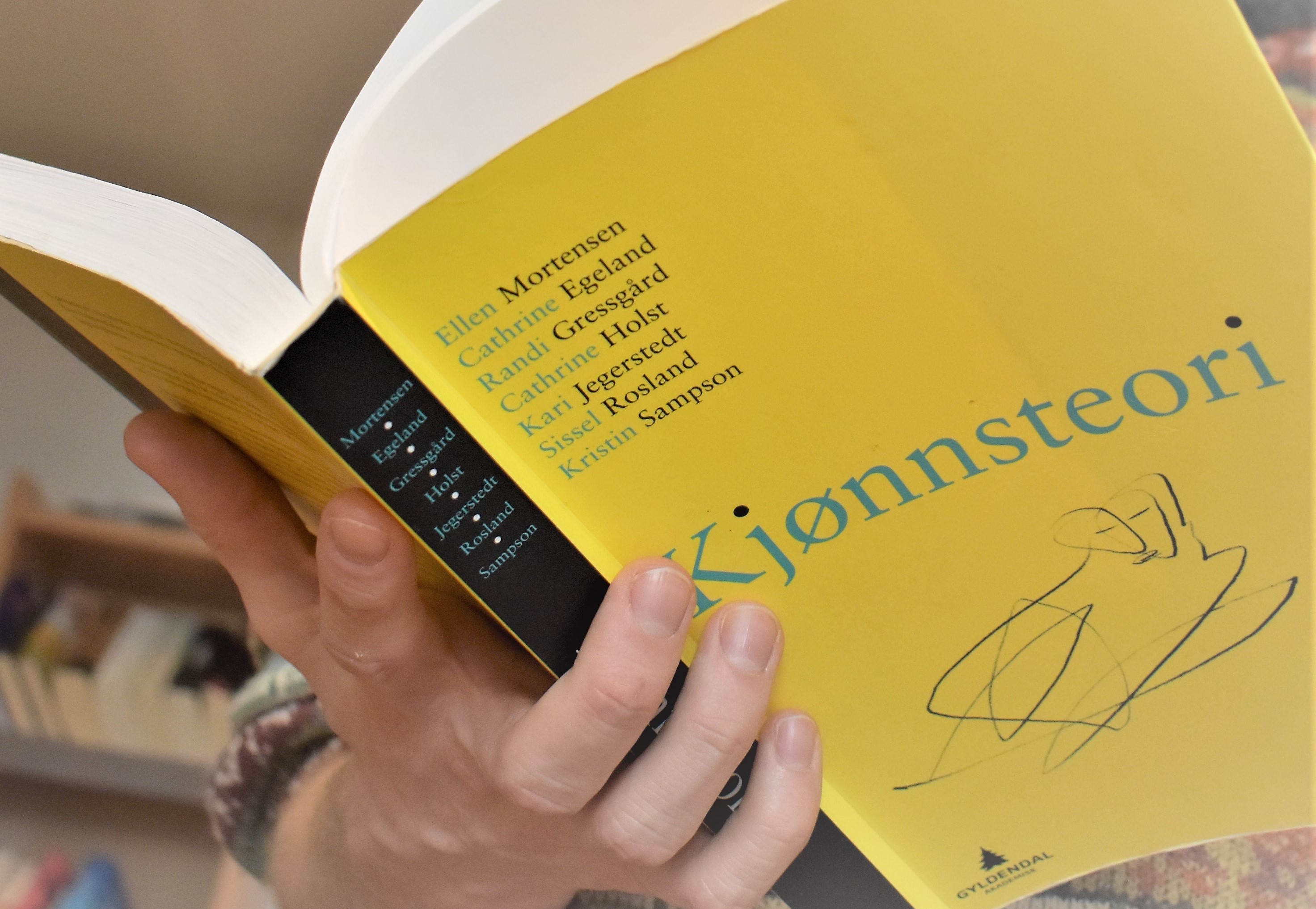
Research Projects
Polarisation, Affect, Identity: Nordic Populism and the Media Landscape (POL-AID)
The project examines Nordic populism and its’ implications for Nordic societies and democratic politics. We are particularly interested in the way that words and symbols that previously were neutral become politicised within populist practices and discourses.

Populism notoriously divides societies along cultural, social, and political lines through the construction and mobilisation of identities. By appealing to emotions that generate a sense of unity and belonging, populist leaders, parties and movements are able to create distinctions between ‘us’ and ‘them’. POL-AID combines a mix of theoretical and methodological approaches from different disciplines in order to grasp and map how identities of ‘us’ and ‘them’ are constructed specifically in Norway, Sweden, Denmark, and Finland.
Using bottom-up interpretative inquiry and cross-country comparison of medialised public discourse to examine cultural meaning-making practices, the project investigates the following questions:
- How can the study of populism be enhanced by combining performative and cultural approaches with techniques from rhetorical and discourse analysis while incorporating tools for studying hybrid media?
- In what particular ways are identities and antagonisms constructed in each country and their different medialised fora and how do neutral symbols become objects of affective investment?
- How can researchers and journalists rethink their roles and positions and actively work together to reverse power asymmetries that exclude and oppose certain groups and perspectives?
POL-AID maps the political antagonisms, identities, demands, symbols, and frontiers articulated in Nordic populisms. It will generate innovative theories and methods and produce teaching materials, and resources for journalists to generate better understanding and awareness of populist practices.
Researchers:
- Liv Sunnercrantz, PI and Associate Professor
- Morten Stinus Kristensen, Postdoctoral Fellow
Partners:
- Juha Herkman, University of Helsinki
- Mattias Ekman, Stockholm University
- Amanda Machin, University of Agder Allan Dreyer Hansen, Roskilde University
Working conditions for queer people in academia: An empirical investigation of diversity, (self-)censorship and academic freedom
With this survey, we want to take a broad approach to collecting and analyzing responses from many more researchers and employees in Norwegian academia.
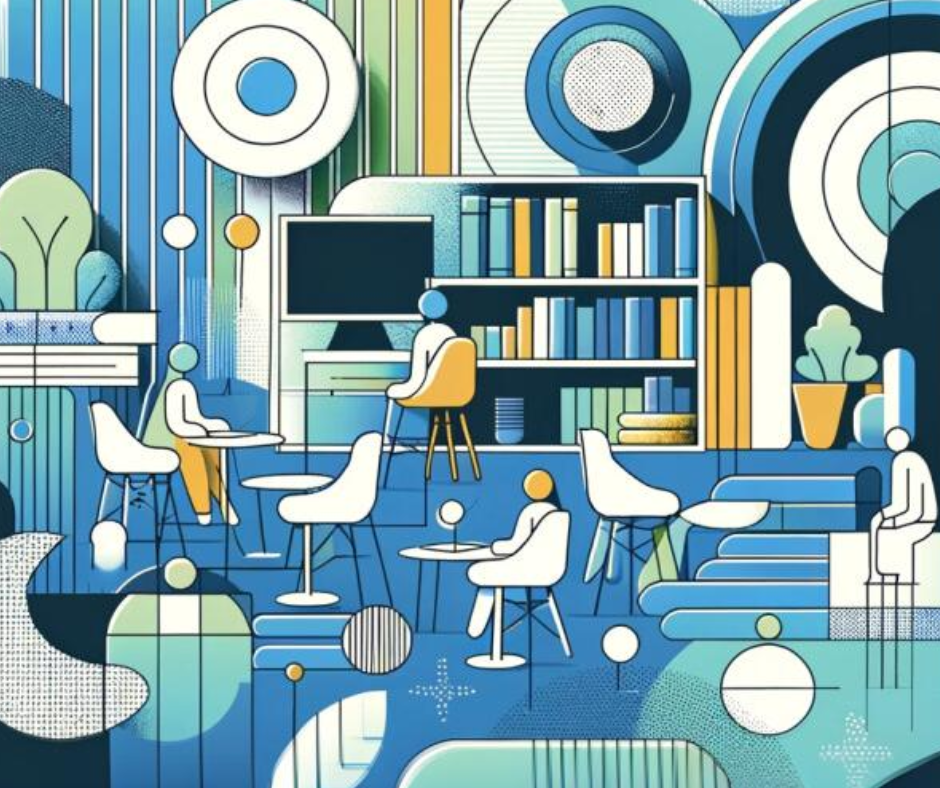
In Norway, we lack systematic research-based knowledge about working conditions among researchers, students and employees who identify as 'queer' (LGBTQ+) at higher education institutions. Existing statistics mainly focus on gender balance and ethnic diversity. Research from other countries shows that discrimination, self-censorship and minority stress are widespread. A pilot study from 2022 among members of the Queer Research Group (n=16) indicated that similar challenges exist in Norway. SSB findings from 2023 show that queer people experience a lower quality of life than heterosexuals, and that working and study conditions are a contributing factor in terms of minority stress and discrimination. With this survey, we want to go broadly to collect and analyze responses from many more researchers and employees in Norwegian academia. On this basis, we can contribute important knowledge about the real challenges of diversity and working conditions in today's academia, and make concrete proposals for measures and improvements.
Contact person: Elisabeth Lund Engebretsen
How can increased use of technology in care practices become more ethically sound?
The research project Caring Futures: developing care ethics for technology-mediated care practices (QUALITECH) addresses these questions in order to secure quality care in a future with increasingly technology-mediated caring practices.

Professor Ellen Ramvi (Faculty of Health Sciences, UiS) heads the project, which is funded by the HELSEVEL-program with the Norwegian Research Council. Through trans-disciplinary collaborative practices, the project aims to develop a care ethics paradigm to inform and ensure quality of care in caring futures.
Innovation, increased efficiency, and development and use of new technology are often presented as solutions to new demands in care and welfare practices. However, the evidence on ethical implications of technological innovation in current technology-mediated care practices is scarce. QUALITECH therefore revisits care ethics in practice- and experience-near contexts, at a time of changing health, care and welfare policies, services and practices. Our principal research question is: how can technology-mediated care practices become care-ethically sound – and, correspondingly, how can care ethics become more technology-aware? The project safeguards that increasing use of new technology in care corresponds with quality in care for users and professionals, and its implications for practice, policy and education.
The project consists of five work-packages:
- Digital assessment templates in the child welfare services (WP Lead Åse Vagli, Institute for social work, Faculty of Social Sciences, UiS)
- Professionals’ ideals and sense of self in technology-mediated care practices (WP Lead Birgitta Haga Gripsrud, department of care and ethics, Faculty of Health Sciences, UiS)
- The impact of robots and other caregiving techno-bodies on agency and quality of care (WP Lead Ingvil Hellstrand, Centre for Gender Studies, Faculty of Social Sciences, UiS)
- Management, design and implementation of technology in care practices (WP Lead Brita Gjerstad, Institute for social work, Faculty of Social Sciences, UiS)
- Caring futures (WP Lead Ellen Ramvi, department of care and ethics, Faculty of Health Sciences, UiS)
Race, gender, and sexuality in Scandinavian far-right extremism
The project investigates the discursive construction of race, gender, and sexuality in the visual culture of three online far-right extremist platforms in Scandinavia.

This interdisciplinary project brings together feminist theories on the intersection of race, gender, and sexuality with Internet research into online communication strategies of the far right. The project looks specifically at visual content posted to three far-right online platforms – one in Norway, one in Sweden, and one in Denmark. The content consists of memes, cartoons and other types of visual content and it is for the most part characterised as humorous or satirical.
While much research has been done on the communication strategies of the far-right, little research is produced on the specific online communication and dissemination strategies that use popular Internet culture, such as humour, irony, and satire. While humorous communication is often dismissed as “just a joke”, this project aims to take humour seriously and explore what is hidden under the guise of humour.
The project explores how racism is discursively produced in the intersection with gender and sexuality. The aim is thus to investigate how platforms that privilege a white, Nordic perspective simultaneously create a discursive othering of racial, gender, and sexual minorities using media that is otherwise associated with light-hearted, harmless fun.
Imaginaries of Caring Robots: Reading Robots in Science Fiction Through Levinasian Ethics
This PhD project investigates the ethical issues and concerns posed by imaginaries of caring robots in science fiction, where they often serve as human substitutes in social roles such as care givers and companions for vulnerable populations like older adults and children.

The ever-growing implementation of care robots in the context of science fiction is moving toward a turning point at which they may qualify for moral agency once they have reached a certain ethical threshold. The questions needed to be addressed: What ethical limitations are at stake in imaginaries of caring robots in science fiction? What can these ethical imaginaries tell us about care, agency and humanness? In my project, I propose Levinas’s ethics as my theoretical framework in order to explore to what extent it is possible to establish “ethical robots”. According to Emmanuel Levinas’s ontology, ethics emerges in our interactions with others. He argues that our capacity to open ourselves unconditionally to the Other is what defines not just our capacity to establish ethical relationships, but also our capacity to be human. As such, this project explores the possibility of considering imaginaries robots as communicative and decision-making entities deserving of attention as well as understanding that they are strange nonhuman others. I support my analysis by exploring questions of otherness through feminist technoscience framework, where the relationships between humans and technology are at the forefront. Therefore, this study calls for a careful analysis of the impact of caring robot imaginaries on questions of agency and ethics. This PhD project is part of UiS-based project, Caring Futures: Developing Care Ethics for Technology-Mediated Care Practices funded by The Research Council of Norway (2021-2024) which aims to develop a care ethics paradigm to inform and ensure quality of care in caring futures.
Queer Materialism: Diffractions of New and Historical Materialisms
Developing a political analytics of the diffractive field where queer theory, new materialism and historical materialism meet.

In my PhD project I inquire into the possibility of a queer materialism as a field of study as well as a political engagement. Thought out as a triangulation of queer theory, new materialism and historical materialism, this project draws attention to the materiality of the social world as a necessary, active and under-theorised component. Through an engagement with key theoretical texts in said traditions, I explore the social, historical and economic conditions under which bodies as matter come to matter. Attentive to the recent ‘materialist turn’ in the social and cultural sciences, I analyse three crystallisations in the field that I call queer materialism: the in-becoming conjuncture of the two materialist traditions and queer theory. These crystallisations are in the process of materialising in three articles: a theoretical elaboration of the concept of ‘renaturalisation’ through a historically and materially informed analysis of desire and the construction of the hetero-human; a cross-reading of the living-dead dichotomy within Queer Death Studies and historical materialism; and finally a queer materialist discussion of petrocultures. I suggest a diffractive approach that understands the imbrication and complicity of each tradition with the others so as to create constructive accounts of fields of study that historically read each other antagonistically and to provoke alliances where discourse falters.
Confronting fantasies of Scandinavian progressiveness and queer utopia: Queer and trans organizing in Denmark since 1990
The project traces the emergence of queer and trans organizing in Denmark from the 1990’s and onwards and explores the radical possibilities of these movements.

The doctoral project has the tentative title ‘Confronting fantasies of Scandinavian progressiveness and queer utopia: Queer and trans organizing in Denmark since 1990’. Working closely with different groups and individual activists, I intend to trace the emergence of queer and trans movements in Denmark with a main focus on the past 30 years. The overall purpose of this project is to explore both the radical possibilities of queer and trans organizing as well as the pervasive politics and structures of cis-heteronormativity, racism, whiteness, coloniality, capitalism and ableism within Danish society and thus also within queer and trans organizing.
A central question, I ask in the project, is how understandings of gender, body, queerness, transness, community and resistance are produced, negotiated and reconfigured in the organizing. Furthermore, I am interested in the activists positioning vis-à-vis the nation-state, their alignment with other social justice struggles as well as how they understand and deal with intersectionality and the mainstreaming and cooptation of LGBTIAQ+ politics into the neoliberal state and the nonprofit industrial complex. Through a critical exploration of respectability politics and rights-based activism and the organization of alternatives and resistances to these, I hope to flesh out possibilities for organizing beyond homo/transnationalism, gay imperialism and racial and colonial capitalism.
The project is community-based and I engage both autoethnographic methods and collaborative ethnography. This means that it is central that the project contributes to movement-building, struggles for social justice and knowledge production which is relevant to the communities from where and with which I do the research. Accountability is thus both an analytical and methodological key concept. Furthermore, I employ a wide range of methods such as archival research, memory work, oral history interviews, participant observation and policy analysis.
The project is part of, but not funded by, the ‘NordiQueer’ project (PI: Jens Rydström).
Forced adoption in Denmark and Norway: family, care, and nation state
This PhD project approaches the contemporary social policy of forced adoption as a biopolitical strategy marked by gender, race and class situated in the Danish and Norwegian welfare state contexts. How does this policy function as a political technique? And how does it work to (re)configure family, nation, care, and kinship in the welfare state?

Since the beginning of the 2000s, Norway has seen an increasing political will to enhance the social services’ application of adoption without the consent of the child’s first parents, and Denmark is following suit in the effort to make forced adoption a regular tool for social policy. Consequently, the number of forced adoptions is increasing in both countries and it appears imperative to question this policy as a significant example of state interference and violence.
Situated between the Danish and Norwegian contexts, the project will seek to understand how forced adoption functions as a biopolitical tool that demarcates liveability and unliveability for vulnerable populations, and investigate how forced adoption as a contemporary policy ‘make live’ and ‘let die’ of family and kin relations. The policy of forced adoption furthermore opens up analysis of how the state establishes the (adoptive) family as a central node for care and happiness against discursive figures such as the ‘unhappy single mother’ and the ‘dysfunctional immigrant family’. Lastly, exchange and comparison between the two contexts in political discourse and knowledge production on forced adoption will be analysed in order to investigate the discursive assembling of Denmark and Norway as nations and welfare states.
The project is a double degree shared between University in Stavanger and Roskilde University.
The use of personal life stories in care work
The project "Life Sheet" maps the use of patients’ personal life stories as part of care work practices in nursing homes in the region.
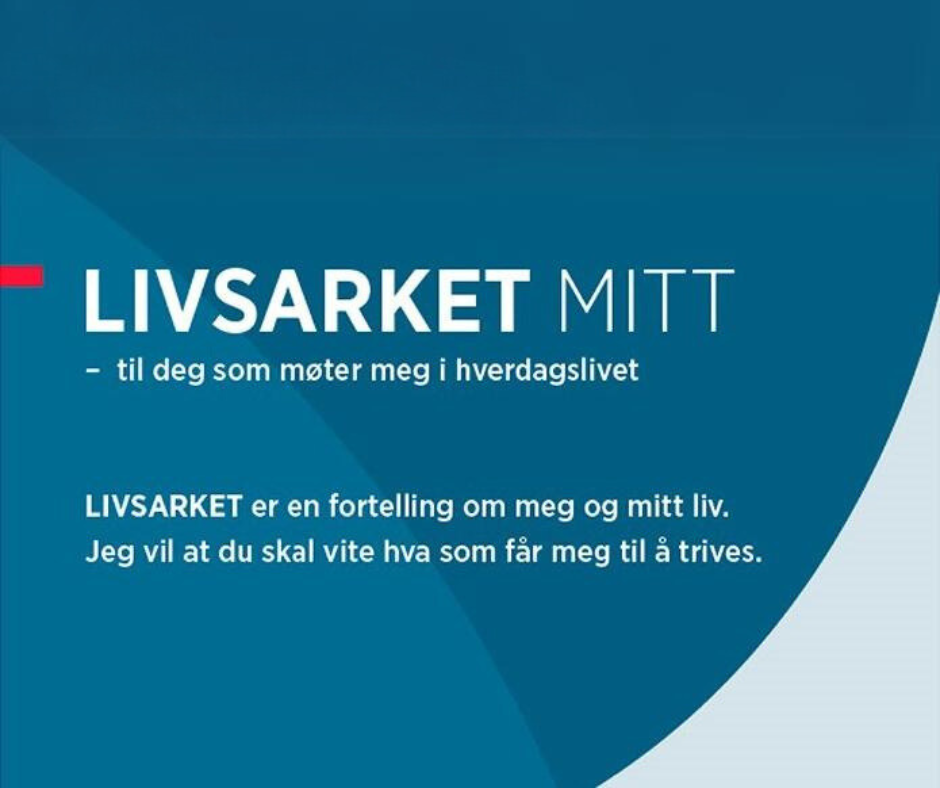
Knowledge of a person's life history is essential for providing professional, individualized care. Therefore, the Norwegian government has proposed increased use of the so-called "life sheet" in dementia care - short texts or overviews of a person's important life experiences and preferences.
How is a person's life story used?
Healthcare professionals have used life stories in dementia care for many years, but little research has been done in the field. Therefore, a project at the University of Stavanger will map how life stories are collected and how they are put to use in relational care practices at nursing homes in the region.
The project started in 2019, after researchers Nora Simonhjell and Ingvil Hellstrand wrote an article about the life sheet as a narrative genre. The research group is now working on the first of three phases of the project. In the first phase, a survey has been conducted at all nursing homes in Sør-Rogaland. The data collection was carried out by nursing students in clinical practice placements and researchers associated with the project.
Ingvil Hellstrand from Centre for Gender Studies is the projectleader of the "Life Sheet" project.
What can we learn from the monster and the monstrous?
The Monster Network is an interdisciplinary research community working with questions of marginalisation and difference through the monster as an analytical lens.
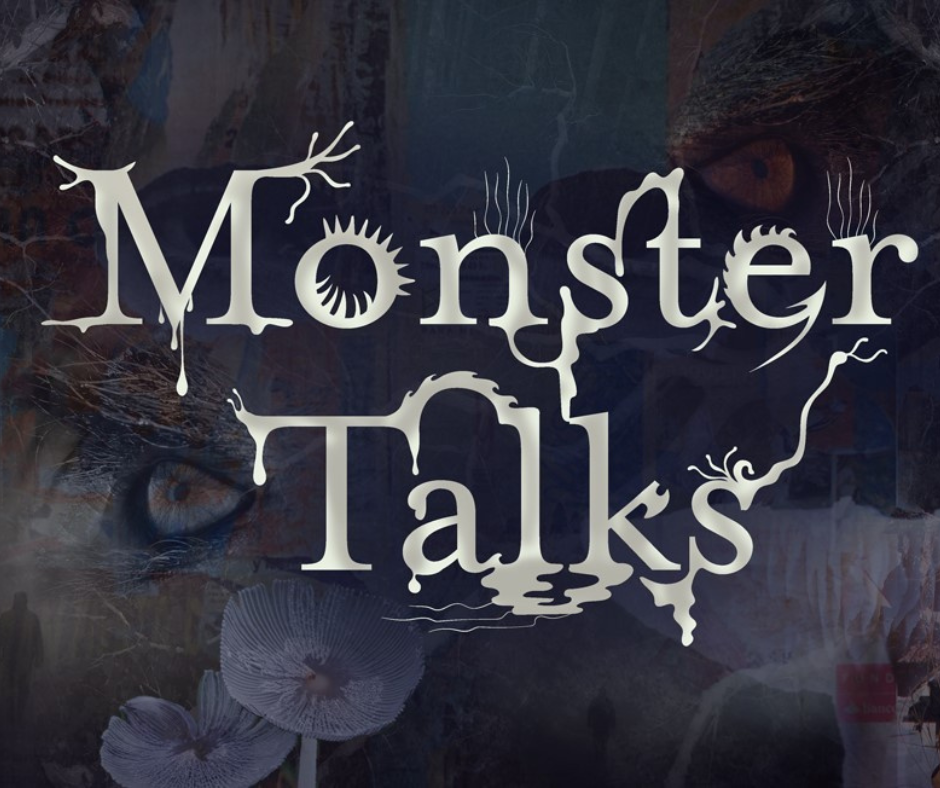
Joanne Theresa Kleppe (NettOp)
The figure of the monster is often invoked as something which haunts and disturbs. As a result, the very notion of the monster and the monstrous points to social, ethical and political consequences of what threatens the “normal”.
As such, monsters can be said to productively roam the in-between, making traditional borders and boundaries tremble and shatter; whether these be borders of nation states or bodies, or categories of race, gender, sexuality, ability, class, self and other. In this sense, the monster seems to embody a promise of disturbances and change, as Donna Haraway argued in her 1992 text “The Promises of Monsters”.
The Monster Network takes this productive potential of the monster as our starting point. How can the monster serve as a thinking tool for cultural, ethical and political challenges in our times?
We contribute to the emerging field of Monster Studies through our collective research practices, which are indebted to feminist, queer, decolonial and posthuman frameworks for thinking about relationality, community and responsibility. Our aim is to spark collaborations between artists and scholars by organizing conferences, workshops, publications, symposia and public events as well as creating a space for discussions and publications.
Visit our website for more information. We also have a podcast series called Monster Talks, produced in collaboration with UiS NettOp.
| Website: The Monster Network | Podcast: Monster Talks |
Completed research projects
Here you will find an overview of previous research projects that have been completed.

Loving Attachment: Regulating Danish Love Migration (LOVA)
The LOVA project examined how legal and psychological concepts of attachment have been used to regulate different forms of migration in Denmark over the past twenty years.
LOVA was a collective research project funded by the Independent Research Fund Denmark (2016-2022). Since the early 2000s, Danish governments have implemented one of Europe's strictest immigration laws. The LOVA project's ambition was to qualify the understanding of how different forms of migration are managed - both conceptually and politically - in a Danish context;
LOVA specifically examined the ways in which attachment as a psychological and legal concept is used to regulate forms of migration that are broadly understood as involving love relationships: that is, family reunification, transnational adoption, and transnational marriage. In everyday understandings, attachment, as a developmental psychological concept, is often associated with the individual's capacity to create social bonds. From 2002-2018, the so-called attachment requirement was part of Danish migration legislation, and during the same period, interest in attachment as a psychological framework grew in the field of transnational adoption in Denmark.
The overarching research question for LOVA was:How and with what effects has the concept of attachment been operationalized to regulate different forms of love migration in a Danish context from 2000-2020? LOVA is built around four individual and two collective, interdisciplinary projects, which analyze different forms of empirical evidence, including legal texts, media discourses and representations, policy and information material.
Women's sexual justice politics in Scandinavian queer organizing (Beyond Equality)

Beyond Equality examined the history of women's participation in the establishment of collective queer activism, with a particular focus on the fifteen-year period between 1978 and 1993 in Norway.
Beyond Equality was a sub-project under NordiQueer, and its main ambition was to map and analyze the complex challenges and circumstances that have so far shaped Scandinavian queer organizing, from a queer feminist perspective. The project manager was Elisabeth Lund Engebretsen and research assistant Erika Eidslott. The affiliated research fellow was Nico Miscow Friborg.
Engebretsen used an ethnographic and micro-historical focus to illuminate three case studies: The Lesbian Bus Campaign in 1988, the radical activist group Rosa Rebeller that was active around 1988-1992, and the debates around queer family and sexual politics before the Partnership Act was passed in 1993, with a particular focus on the dynamics between respectability and radical dissidence.
Funding: Vetenskapsrådet (The Swedish Research Council). 2019-2022
Transforming identities: Exploring changes, tensions and visions in the Nordic region through the prism of identity politics
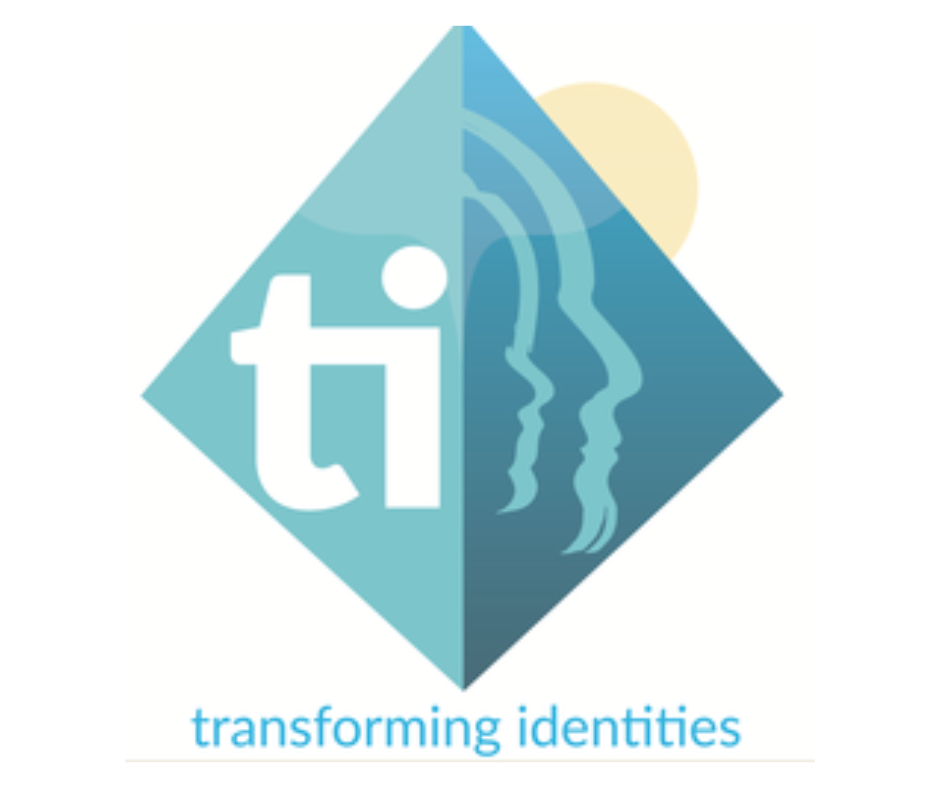
What does the rise of the far right, growing nationalism, and political and environmental uncertainty mean for solidarity and democracy?
The research network Transforming Identities brings together researchers, activists, artists and writers to discuss current challenges to democratic participation and different understandings of diversity and minorities, with a particular focus on the Nordic societies. At a time when the concept of identity politics is increasingly contested, minorities are more vulnerable but also experience increased legal protection and participation in public debate, this project takes the concept and discursive landscape of "identity politics" as a starting point to examine current challenges - what is at stake, why and for whom? The project brings together a broad group of researchers from different backgrounds (professional, geographical, career stage) to exchange knowledge and ideas, as well as explore new understandings of equality and rights, solidarity and democracy, in the context of the rise of the far-right, growing nationalism, and emerging local, regional and global political and environmental uncertainties.
Postdoktor project: The Deathliness of Black Motherhood: The Exile of Black Life in Canada, Sweden and Norway - Jan-Therese Mendes
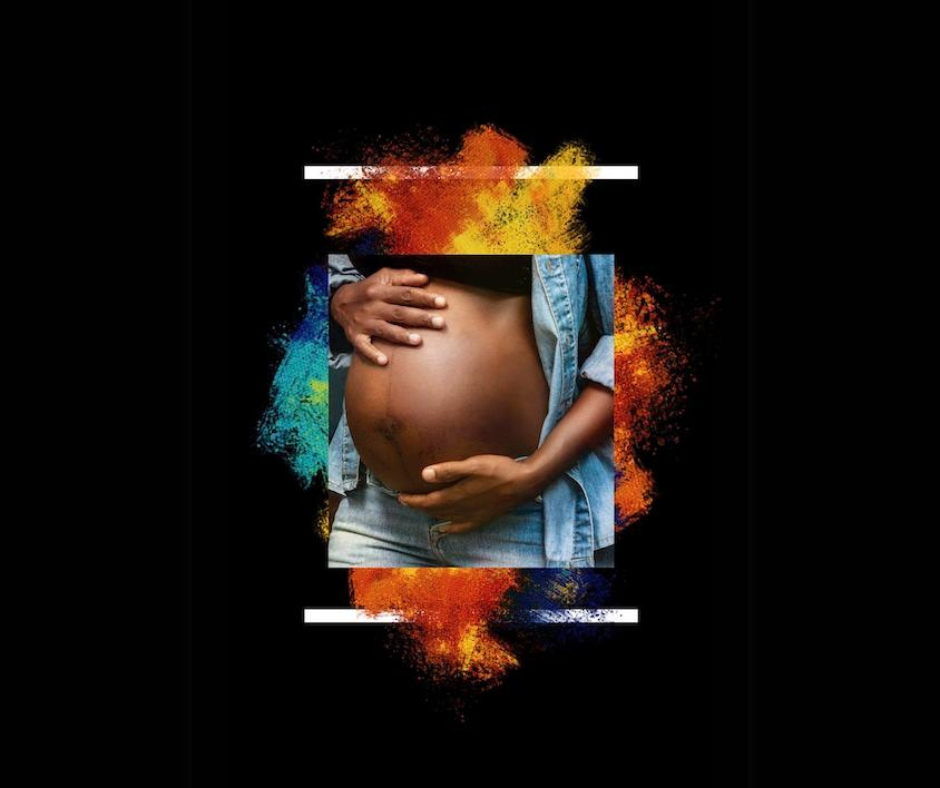
The lethal and affective pedagogy of white nationalism in the face of the black reproducing body.
Mendes' PhD thesis (York University, Canada 2019) "The Deathliness of Black Motherhood. The Exile of Black Life in Canada, Sweden and Norway" began an examination of black reproduction through the theme of racist nationalism: The Exile of Black Life in Canada, Sweden and Norway" contributes new insights into (1) black migrant motherhood, (2) welfare state belonging, and (3) racist gender discrimination.
Central to this research was to examine the affective techniques and lethal consequences of anti-Black racism as exercised against Black women's bodies in the white-dominated Northern welfare states. Specifically, this project uses qualitative research methods to examine how the everyday instruments of nationalism regulate the perinatal Black female subject or Black mother through painful criminalization, public humiliation and near-death experiences.
Here, Mendes argues that the state apparatuses meant to mitigate social danger (e.g., border control, police, child welfare) penalize black women's reproductive capacity as a source of cultural unassimilability, national insecurity, and racial disharmony. In this project, I examine how the black womb and the black vagina are treated as sites of state hostility, and how they are punished for daring to spread more unintegrable blackness and tax obligations in the white national space. Next, it examines how the black fetus or child is either included in a similar logic of racist ridicule or disciplined into becoming an assimilated subject through the humiliating event of the black mother's distress.
Postdoktor project: Queer Herstories of struggle and survival in Romania: From Communist criminalization to contemporary anti-gender movements in SEE spaces - Ramona Dima
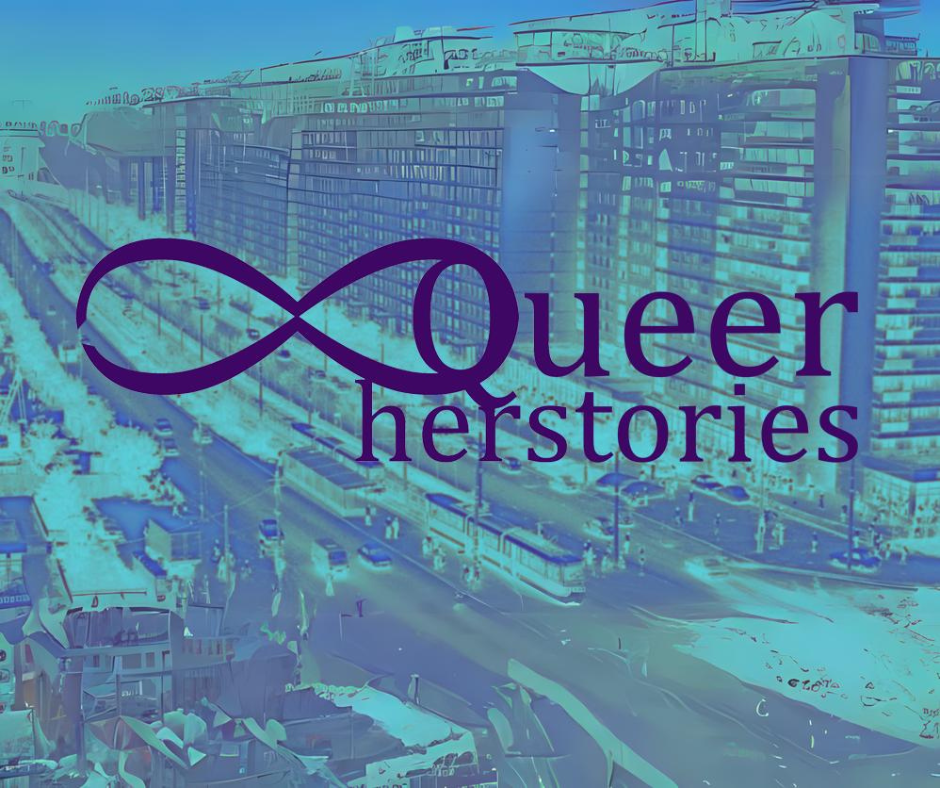
The EU-funded project Q-SEERA studied the rise of anti-gender politics in Romania and other southeastern European countries.
The project used groundbreaking methods and adds unique knowledge that goes beyond what is known about the lives of queer (LBT+) women in Southeast Europe. By looking at a previously unexplored topic - the intimate and social life of queer Romanian women during communism and the 'transition' period of the 1990s - and by comparing the results with research from the SEE region, the project explores how Romania differs from other SEE and EU countries and reveals inequalities in the region. The project proposes new understandings of the rapid rise of gender discriminatory policies in Romania and other SEE countries by unearthing new knowledge about marginalized women's lives, struggles and survival strategies.
This was done by collecting original and unique data from interviews with older women, archival and textual analysis through a micro-historical approach, combined with a comparative analysis of gender norms related to sexuality in both communist and post-communist Romania and SEE. An innovative theoretical framework was developed to address European challenges related to politics and political discourses involving gender and sexual minorities from a transnational perspective. This is done by linking how the Romanian state enforced homophobia and sexism during communism and up to EU membership, by looking at how this state-sanctioned social behavior propagates to the present day, and by linking these findings on gender and sexuality to the roots of anti-gender movements in Southeastern Europe.
The project was led by Ramona Dima, Marie Skłodowska-Curie Postdoctoral Fellow, University of Stavanger in collaboration with Elisabeth Lund Engebretsen, Associate Professor, UiS, and Professor Lene Myong at UiS.
This project has received funding from the EU's Horizon 2020 research and innovation program under the Marie Skłodowska-Curie Grant Agreement No 101022731.
Do you want to learn more about gender, power and inequality?
Centre for Gender Studies offer three elective courses, and a 30 ECTS Minor in Gender Studies. All our courses are open for bachelor and master students, and for international exchange students.
Now you can study a Minor (30 ECTS in-depth study) in Gender Studies at UiS. The minor consists of three courses that critically engage with contemporary questions about power, (in)equality and discrimination.
Researchers at Centre for Gender Studies
News
The conference Gender Studies Now 2023
The conference Gender Studies Now 2023 is hosted by the Centre for Gender Studies at the University of Stavanger, 1 - 2 ...
Voices of Women (VOW)
Mezzosoprano Bettina Smith, Professor of singing at the Faculty of Performing Arts, University of Stavanger, is during t...
Social and Spatial Justice
This research group is dedicated to the theoretical and empirical study of social and spatial justice from a cross-disci...
Network for Interdisciplinary Gender Studies
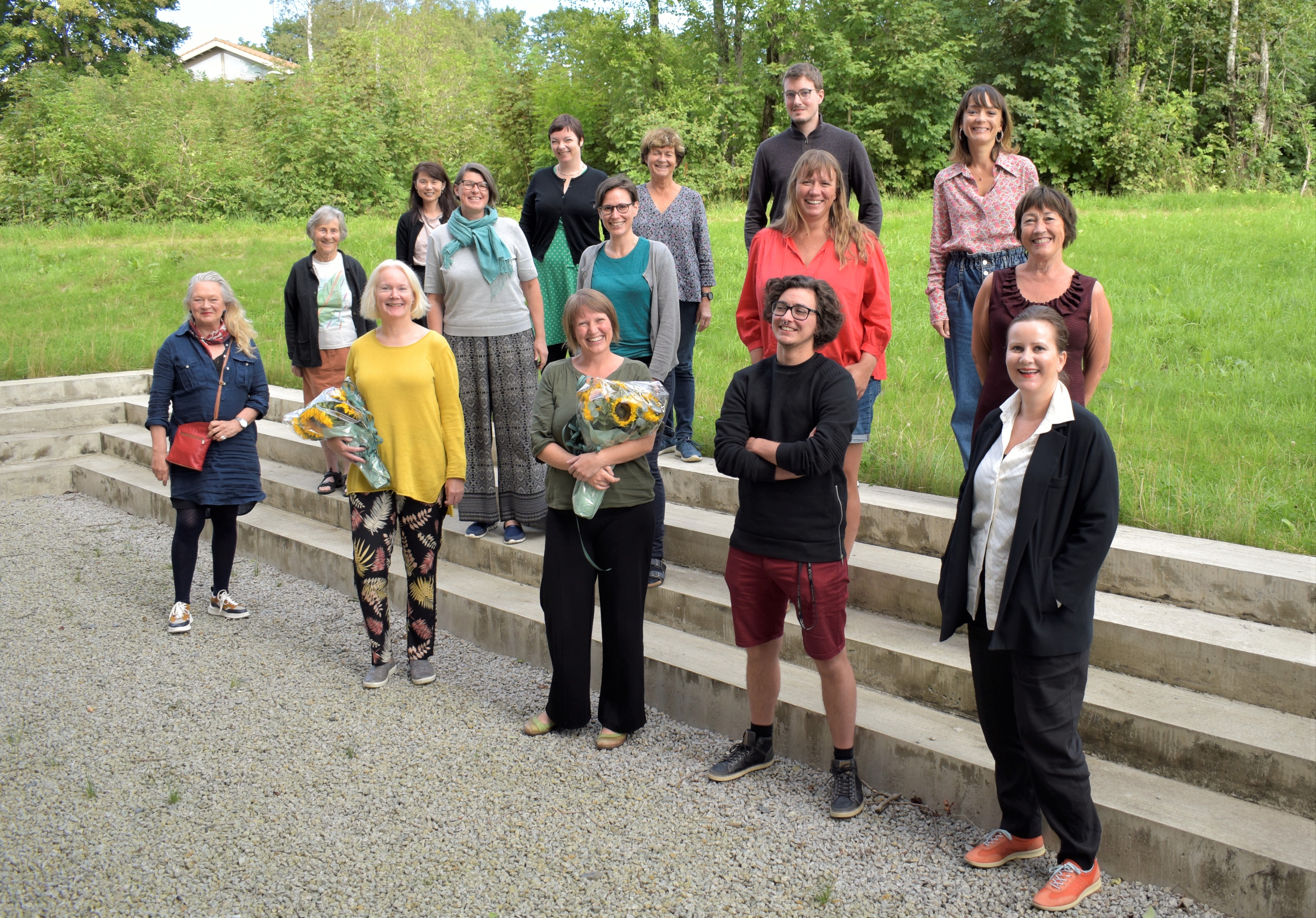
Network for Interdisciplinary Gender Studies was founded in 2001. The network connects scholars across different departments and research fields at UiS. The network also has a number of external members.
Centre for Gender Studies organises and coordinates activities with and for Network for Interdisciplinary Gender Studies. The Centre’s director is chairing the network.
Members from Centre for Gender Studies:
- Lene Myong - Professor and Chair of Centre for Gender Studies
- Elisabeth Lund Engebretsen - Professor, Centre for Gender Studies
- Ingvil F. Hellstrand - Associate professor, Centre for Gender Studies (on leave)
- Mathias Klitgård - PhD candidate, Centre for Gender Studies
- Nico Miskow Friborg - PhD candidate, Centre for Gender Studies
- Ilghar Azarmanesh - PhD candidate, Centre for Gender Studies
- Amalie Sehested Rom - PhD candidate, Centre for Gender Studies
- Maja Brandt Andreasen - Postdoctoral fellow, Centre for Gender Studies
- Morten Stinus Kristensen - Postdoctoral fellow in populism research
Members from UiS:
- Joel Alba - PhD Candidate, Department of Safety, Economics and Planning
- Annam Azeem - PhD Candidate, Department of Cultural Studies and Languages
- Aashima Budal - PhD Candidate, Department of Cultural Studies and Languages
- Marianne Bøe - professor, Department of Education and Sports Science
- Hande Ezlen-Ziya - Professor, Department of Media and Social Sciences
- Birgitta Haga Gripsrud - Professor, Department of Public Health
- Lise K. Meling - Associate professor, Faculty of Performing Arts
- Kristin Armstrong Oma - Professor, The Museum of Archaeology
- Ellen Ramvi - Professor, Faculty of Health Sciences
- Peder W. Roberts - Associate professor, Department of Cultural Studies and Languages
- Ingrid Rusnes - Lecturer, Department of Early Childhood Education
- Ragnhild Sjurseike - Lecturer, Department of Media and Social Sciences
- Kristin Sørung Scharffscherr - Associate professor, Department of Safety, Economics and Planning
- Liv Åsa-Maria Sunnercrantz - Associate professor, Department of Media and Social Sciences
- Silje Henriette Amalia Nordmand - Associate professor, Department of Education and Sports Science
- Sverre Kristoffer Guldberg - Associate professor, The Museum of Archaeology
- Tevfik Murat Yildirim - Associate professor, Department of Media and Social Sciences
- Henriette Thune - Senior Advisor, Faculty of Health Sciences
- Åse Vagli - Associate professor, Department of Media and Social Sciences
- Brynjar Åbel Bandlien - Associate professor, Faculty of Performing Arts
- Tone Linge - Associate professor, Norwegian School of Hotel Management
- Olga Gjerald - Associate professor, Norwegian School of Hotel Management
- Bianca Alighieri Luz Monteiro - PhD candidate, Department of Media and Social Sciences
- Ezgi Pehlivanli Kadayifci - Postdoctoral Fellow, Department of Media and Social Sciences
- Patrycja Sosnowska-Buxton - Postdoctoral Fellow, Department of Social Studies
- Busra Yalcinoz Ucan - Postdoctoral Fellow, Department of Media and Social Sciences
- Reidar Staupe Delgado - Associate professor, Department of Safety, Economics and Planning
- Ozan Sousbois - postdoctoral fellow, Faculty of Social Sciences
- Tanu Biswas - Associate professor, Department of Education and Sports Science
- Linn Anne Margrethe Normand - Associate professor, Department of Education and Sports Science
- Cecilie Larsen - PhD candidate, Department of Media and Social Sciences
- Karen Synnøve Fagerland - PhD candidate, Department of Cultural Studies and Languages
Eksternal members:
- Inger Gudmundson, Curator, Stavanger Art Museum
- Kerenina Kezaride Danshom - Assistant professor, VID
The Council of Centre for Gender Studies
The Centre Council offers counsel on strategic plans, action plans, annual reports, educational programming, and strategic priorities on research, innovation, and communication
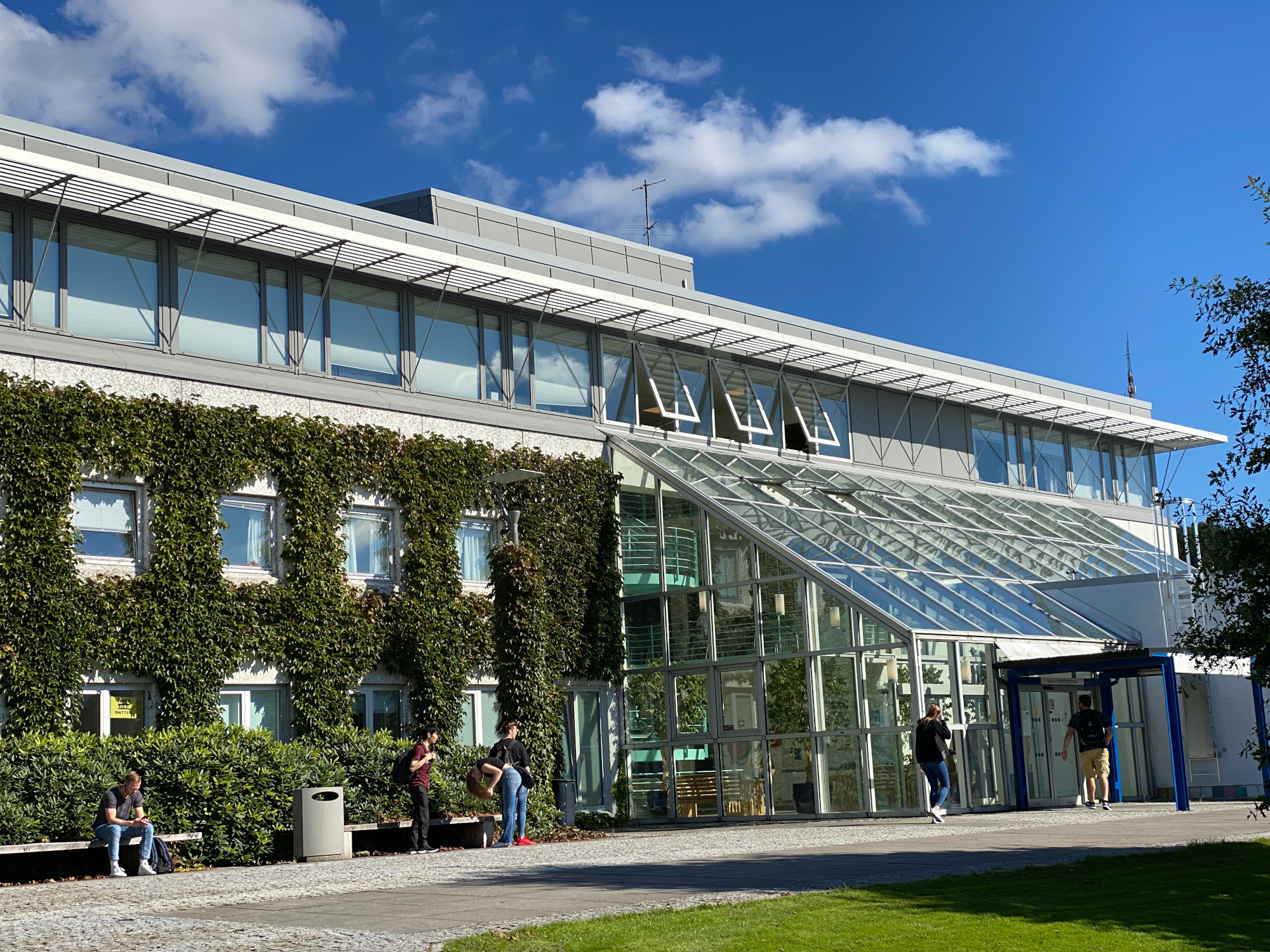
Faste medlemmer:
- Kristiane Marie Fjær Lindland, prodekan for forskning SV-fakultetet, UiS. (Leder for senterrådet)
- Line Nyhagen, Professor, Loughborough University
- Eirinn Larsen, Professor, UiO
- Peder William Chellew Roberts, Førsteamanuensis, UiS
- Gro Ellen Mathisen, Professor, UiS
- Mathias Klitgård, Doktorgradstipendiat, UiS
Varamedlemmer:
- Turid Borgen, Dekan SV-fakultetet, UiS (vara for leder)
- Niels Nyegaard, Postdoktor, UiO
- Ayan Abdi Mohamoud Handulle, Doktorgradstipendiat, UiS
Sekretariat:
- Lene Myong - faglig leder
- Ingvil Førland Hellstrand - studieprogramkoordinator
- Ellen Ersland - administrativ koordinator
Read more about us
The Centre for Gender Studies at the University of Stavanger is a dynamic research and learning environment that especially focuses on interdisciplinary, intersectional and transnational perspectives.
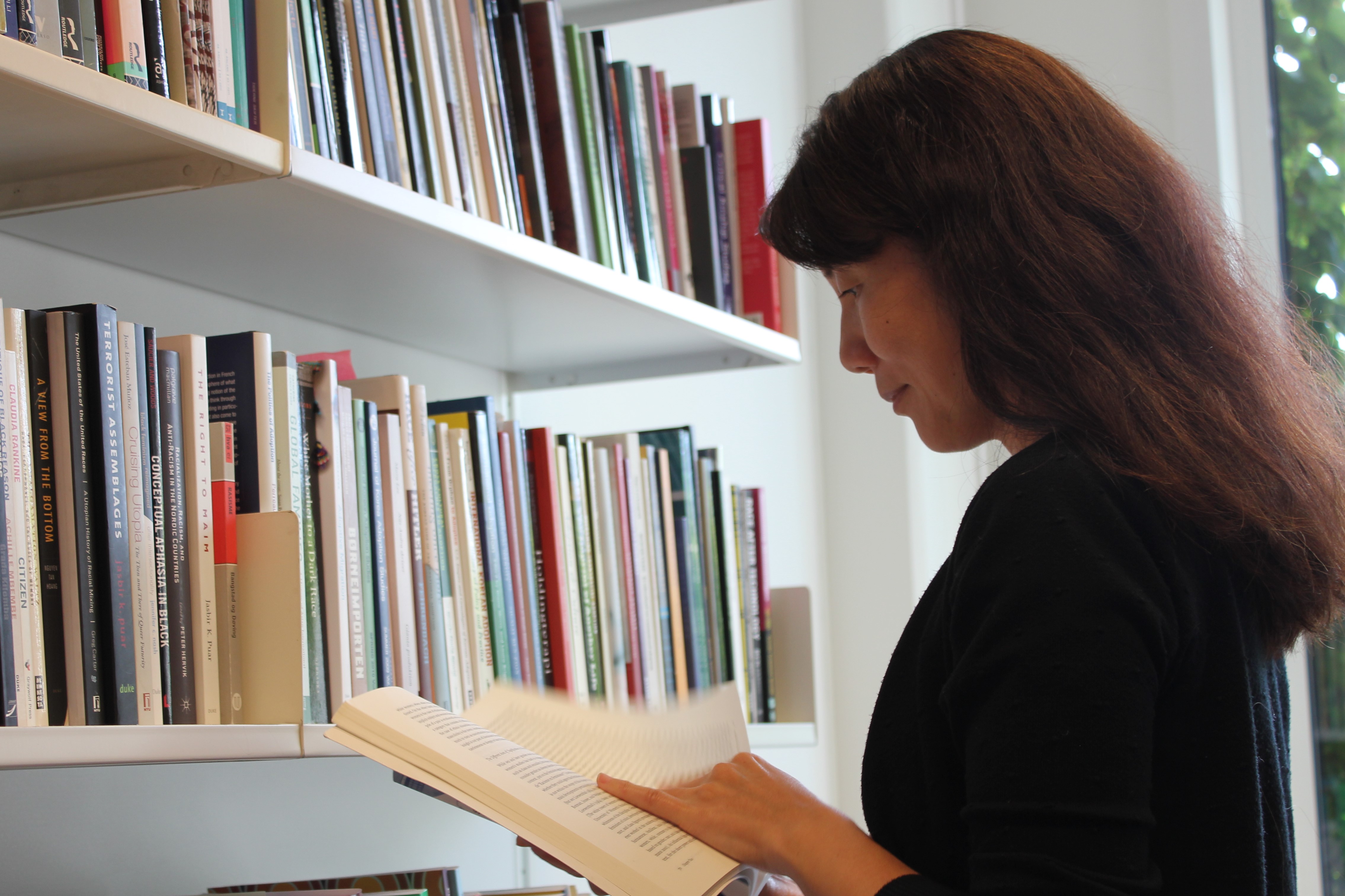
Initially established as a research network in 2001, and granted Centre status in 2019, the Centre offers four courses on bachelor- and master-levels as well as a Minor Concentration in Gender Studies. The Centre participates in several collaborative research projects supported by international and national funding agencies.
With the University’s Museum of Archaeology, the Centre organizes a doctoral training school in radical interdisciplinary (ITEM) which emphasizes ethical reflection, explorative research, and collaboration. The Centre for Gender Studies strives to foster an engaged and inclusive work and learning environment for students, faculty and staff, and actively participates in research and popular dissemination platforms, regionally, nationally and internationally.
Ambition
The Centre’s principal ambition is to engage in interdisciplinary research that critically explores structural inequalities broadly defined, and how they contribute towards maintaining, challenging and stratifying various forms of lives and existences. Approaching gender as an analytical category, shaped by feminist theory and critical theories on power, the Centre engages in research that seeks to strengthen interdisciplinary knowledge production from minority perspectives and to connect academic research with political activism, culture and art. Finally, the Centre aims to contribute towards shaping the research agendas in interdisciplinary gender studies, by asking and exploring new research questions and by disseminating knowledge to actors outside the academy and the wider public.
